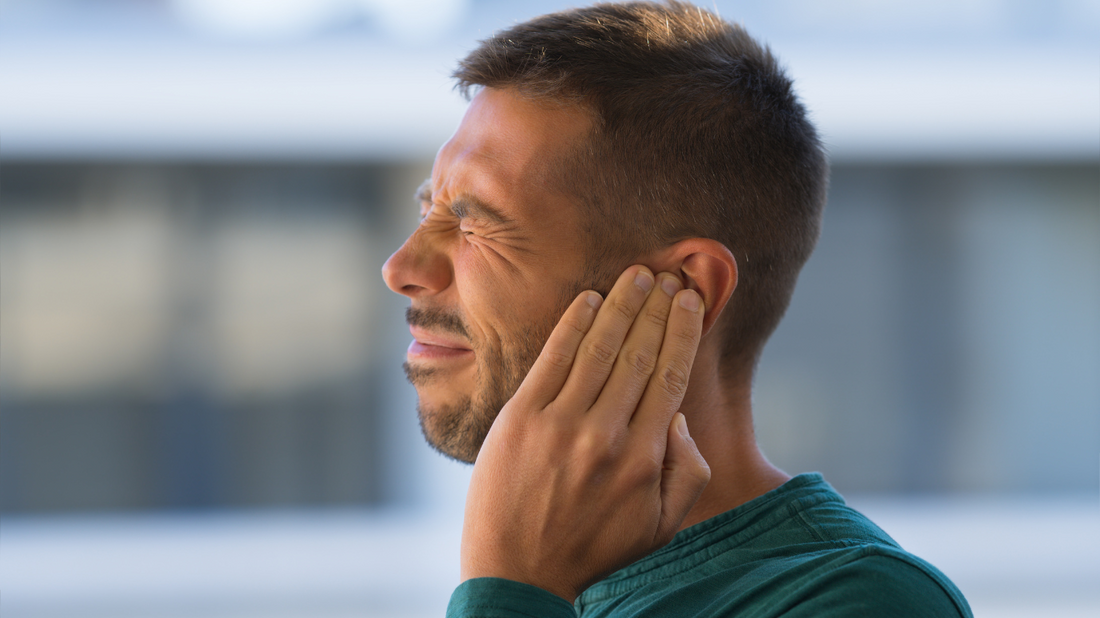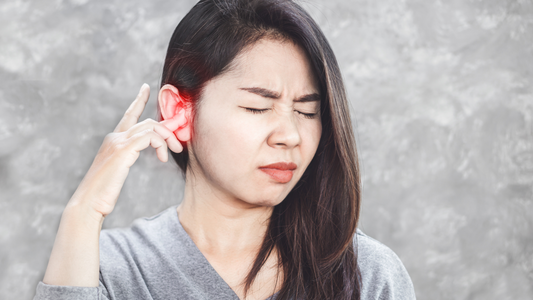Heard a ringing in your ears and shrugged it off? Well, that could be tinnitus. It's more common than you think, and quite a nuisance for those who have it. Ever had to raise your voice to talk to someone because the background was too loud? Or stepped out of a noisy event and noticed a persistent hum in your ears? Those signs shouldn't be ignored. They're a signal from your body worth paying attention to.
So if this rings true for you, you're likely wondering what's behind it all. You've come to the right place. We're not about rehashing common knowledge. We're diving into the nitty gritty of what tinnitus is, the variety of sounds it can cause, and the big question: are those sounds temporary guests or permanent roommates? We’re here to shed light on the reality of tinnitus and give you the lowdown.
Understanding Tinnitus: A Common Yet Intriguing Phenomenon

You're at home, the place is silent, but there's a persistent whistling sound in your ears – that’s tinnitus in a nutshell. It's like a tune that doesn't take a break, playing on a loop just for you. If you're noticing a faint ring in your ears once in a while, that's pretty normal and not typically worrying. But if it’s a constant presence, it might very well be tinnitus.
Different Tunes for Different Folks
People with tinnitus report various kinds of sounds in their ears, more than just ringing. You might hear a distant rumbling, sort of like a far-off truck idling, or maybe a high-pitched squeal akin to a tea kettle coming to a boil. Think of it as a private concert with a set list that ranges in volume and pitch just for you. Why does it happen? It might be the aftermath of a loud event or a sign of something else that a doctor should check out.
Does Tinnitus Go Away or Is It Permanent?
After a lively night out, it's common to notice your ears ringing. You're probably asking yourself, "Is this going to last forever?" The truth isn't exactly black or white. For quite a few folks, that aggravating sound is fleeting, somewhat like catching a chill – it shows up, bothers you for a spell, then up and leaves. This usually follows a one-off encounter with loud noise when your ears demand some downtime to recover.
However, if that buzzing or ringing in your ears is overstaying its welcome like an uninvited house guest, pay attention. It could signify something more persistent, possibly chronic, especially if loud noises are a regular part of your environment or if it's a symptom tied to other health issues. And let's not brush off the possibility that it might arise from health concerns unrelated to noise – those scenarios may warrant a professional's guidance. They'll help you figure out if the tinnitus can be shown the door for good, or if you'll need to make accommodations to live with it comfortably.
Treatment Options for Tinnitus
Dealing with tinnitus is a bit like managing a tricky knee or a stiff back. There's no magic cure, but there are ways to make it less bothersome. Take some common sense steps first. If you've got a ringing in your ears after a night with the band or a day in the woodshop, it's your body begging for a break. Turn the volume down and give those ears a rest.
For nights when tinnitus makes it tough to sleep, consider a white noise app or a fan to drown out the noise. Other life tweaks can help, too. Cutting back on caffeine and finding some stress relief might sound mundane, but don't be surprised if they give you some relief. It's all about striking the right balance, finding the little things that your ears will thank you for.
Until scientists crack the code on a cure, there's a whole toolbox of options to keep your tinnitus in check. Sometimes it's the gear – like devices that pipe in calming sounds. Other times, it's adjusting habits – simple stuff, like remembering those earplugs or easing off the head-banging music. Sure, it's frustrating when there isn't a one-size-fits-all solution, but there's often a way to turn the noise down a notch and live more comfortably.
Treatment Options for Tinnitus
Addressing tinnitus isn't about quick fixes – it's about strategies you can live with. Starting with some sensible choices can make a difference. Turned up the music really loud recently? It's probably time to dial it down and take it easy, giving your ears the rest they need.
Sleep doesn't come easy when tinnitus hits a high note? A fan or an app with white noise might just be the trick to smooth out those sounds for a better night's sleep. Simple shifts in lifestyle, like easing up on caffeine and managing stress, often do more good than you'd expect. They're small steps, yes, but your ears might just notice the difference.
Tinnitus might not have a cure yet, but there's an arsenal of tactics to help you reign it in. Sometimes it's about the right device – sound therapy can work wonders. Or maybe it’s a matter of changing up your routine, being mindful of wearing ear-plugs, or turning down the loud tunes. There’s no universal answer, but often there's a way to live your life with a little less noise.
Turning Down the Volume on Tinnitus
You've got tinnitus and you're likely wondering, what do you do about it? Think of those whistles and rumbles in your ears as an indicator. Your ears might be telling you they need a bit more care. Occasional ringing can be brushed off, kind of like a fleeting nuisance. Lay off the noise when possible to give your ears a chance to rebound.
But if the noise keeps at it longer than you'd wait for a pizza delivery, it's a signal to tune into your health. It could be time to adjust your routine. Introduce some background noises to soften the tinnitus at bedtime. That can help make it less irksome while trying to sleep. If the issue persists, consult a doctor; after all, we all deserve some peace and quiet occasionally.
Sources & References
- Bhatt, J. M., Lin, H. W., & Bhattacharyya, N. (2016). Prevalence, Severity, Exposures, and Treatment Patterns of Tinnitus in the United States. JAMA Otolaryngology–Head & Neck Surgery, 142(10), 959–965. https://jamanetwork.com/journals/jamaotolaryngology/fullarticle/2533528
- Baguley, D., McFerran, D., & Hall, D. (2013). Tinnitus. The Lancet, 382(9904), 1600-1607. https://www.thelancet.com/journals/lancet/article/PIIS0140-6736(13)60142-7/fulltext
- Langguth, B., Kreuzer, P. M., Kleinjung, T., & De Ridder, D. (2013). Tinnitus: causes and clinical management. The Lancet Neurology, 12(9), 920-930. https://www.thelancet.com/journals/laneur/article/PIIS1474-4422(13)70160-1/fulltext
- Cima, R. F., Mazurek, B., Haider, H., Kikidis, D., Lapira, A., Noreña, A., & Hoare, D. J. (2019). A multidisciplinary European guideline for tinnitus: diagnostics, assessment, and treatment. HNO, 67(1), 10-42. https://link.springer.com/article/10.1007/s00106-019-0633-7

The Hear Well Group Research Team: Trusted Hearing Health Insights
Our experienced research team compiles hearing health data from credible, peer-reviewed sources and presents it in easy-to-understand terminology. We ensure accuracy and trustworthiness, providing up-to-date, evidence-based recommendations to enhance hearing care practices and inform our readers' hearing well-being decisions.


